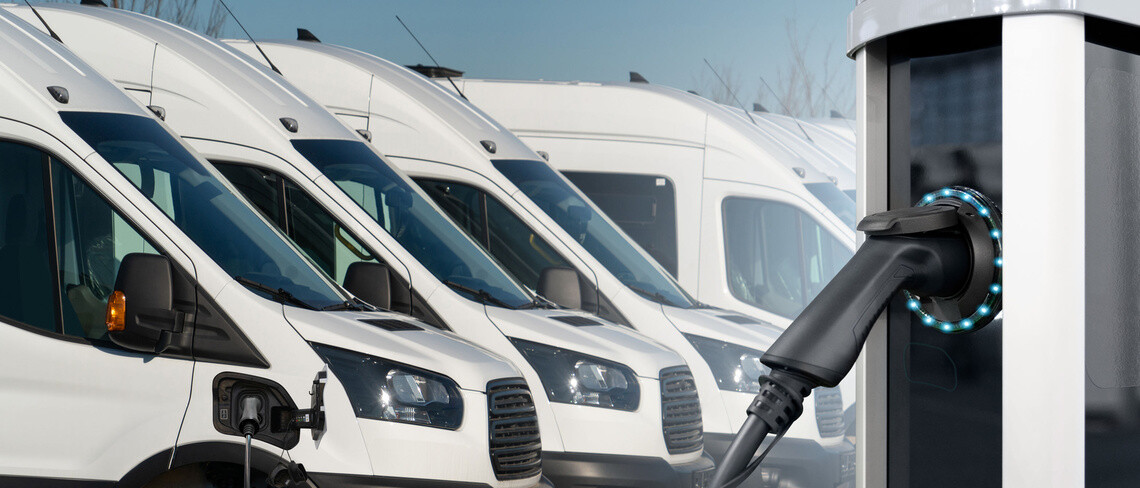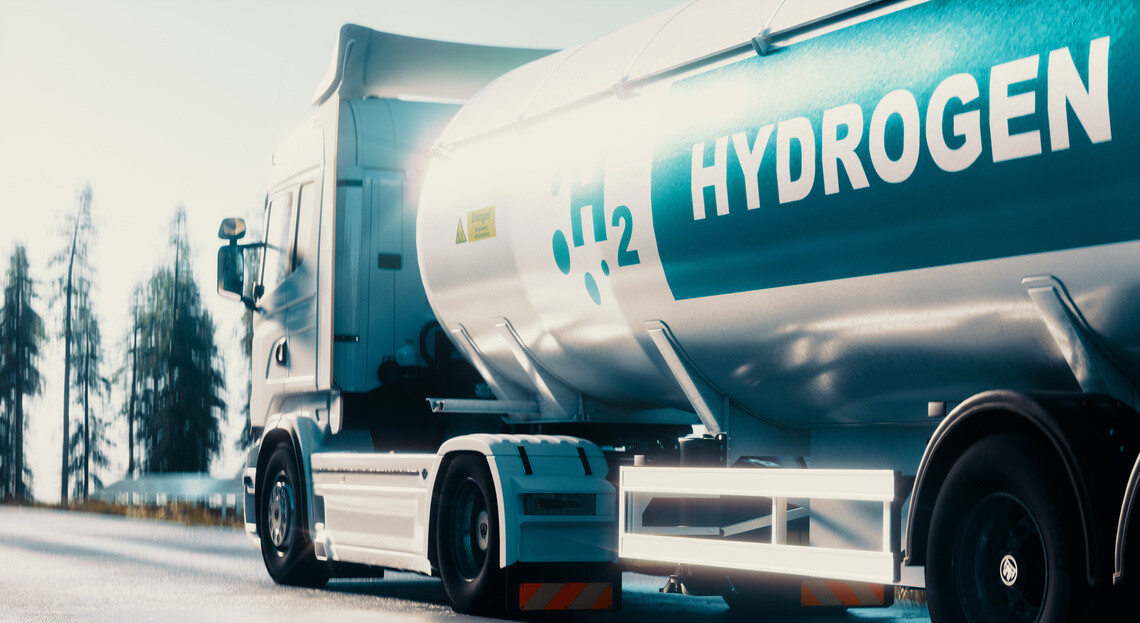
gettyimages 1299228082
Hydrogen logistics concept. Truck with gas tank trailer on the road lined with solar power plants. 3d rendering
In 2019, with the Green Deal and the Climate Package, the European Union committed to reduce its greenhouse gas emissions 55% by 2030... and to become the first carbon-neutral continent by 2050! That means it’s time for transporters to make the switch to more sustainable mobility.
For a no-holds-barred discussion of this huge change, we met with Gaëtan Jollivet, CEO of Jolival, a family-owned transportation and logistics company founded in 1948, and Michaël Fedaouche, CEO of Wave transport, a brand new eco-friendly last-mile delivery company in the Paris area.
Listen to the podcast:

wave5 best energy img1
Gaëtan Jollivet, CEO of Jolival, and Michaël Fedaouche, CEO of Wave transport
La Pommeraye, a small town in the Maine-et-Loire department of western France, 80 kilometres from Nantes. Jolival, a transportation company, is based here, in the Le Tranchet business park. Its buildings are topped with rows of solar panels. A few meters from the reception office, a pair of sheep bleat almost like clockwork. They replaced (and improved on!) the company's old lawnmowers as part of its eco-pasturing program for its green spaces.
Gaëtan Jollivet, 41, has been at the head of the transportation and logistics company founded by his grandfather for the past 11 years. He welcomes us with a touch of humour: “As you can see... and hear... we don’t do things by halves at Jolival! When we make a commitment to the environment, we go all the way. The energy transition isn't just words for us!”
“When I choose a fuel, I want to know where it comes from and compare its impact, and I can't judge it if I can't test it. Before making a choice, you also have to look at the cost of the fuel, the vehicle, and the environmental value.”
Gaëtan Jollivet, Chairman and CEO of Jolival
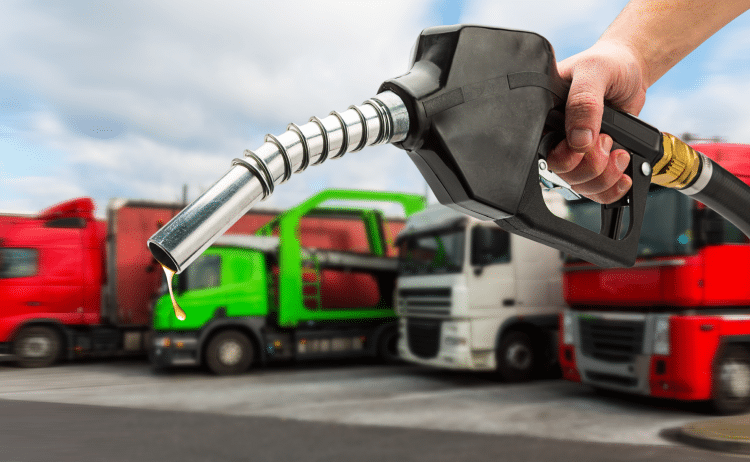
wave5 best energy img2
Jolival, which originally specialised in truckload transportation, combining shipments for full truckloads, is now a multi-activity transporter serving the construction, industry, textile, agriculture, and even aviculture sectors. Jolival has 195 employees, including 155 drivers. More than half of its 120 vehicles have tailgate lifts, which are synonymous with store deliveries, particularly in downtown areas.
“Like with our business, we diversified our fleet,” explains Gaëtan. “It’s 60% DAF, 20% Mercedes, and the rest are Scania, MAN, and Renault Trucks. Scania's share in our fleet has been increasing since we decided to switch to biogas 4 years ago. We’ll have 14 trucks running on biogas by the end of 2022. That's more than 10% of our fleet. And we just bought 4 Renault Trucks B100s for long distances.”
In other words, Gaëtan has opted to focus his alternative fuel investments on biogas. It was a choice he took very seriously, taking the time to research all the options that are currently on the market.
“When I choose a fuel, I want to know where it comes from and compare its impact, and I can't judge it if I can't test it. Before making a choice, you also have to look at the cost of the fuel, the vehicle, and the environmental value.”
On his computer, Gaëtan pulls up a diagram produced by ADEME (the French environment and energy management agency) that compares the well-to-road CO2 emissions of the different fuels available for trucks.
“At this point I’ve ruled out xTL biofuel because it's 25% more expensive. But my entire fleet is now compatible. Right now, I’m not plunging full speed ahead with the B100 because I want to test it first. I’m a little conflicted about rapeseed cultivation. How many tons of oleaginous plants would it take to supply the fleet? Where will those plants come from? My B100s currently run on diesel. I’m not committed to anything. If I change my mind tomorrow, I can stop!
On the other hand, I am definitely not on board with LNG (Liquefied Natural Gas). I never understood why anyone would switch over to it. If you look at the ADEME energy comparison chart, you’ll see that it's actually worse than diesel! It comes from the other side of the world by ship. And in terms of distribution, it's a nightmare. The driver has to gear up like an astronaut to fill the tank. I use some Compressed Natural Gas (CNG). I don't have any choice, since I don't have enough biogas stations.”
What does Gaëtan think about electricity? “What bothers me most about electricity is the fact that it doesn't come from renewable sources. And what do we do with the end-of-life batteries? Electricity clearly won't be the cleanest, cheapest fuel in the future.”
“For now, we’ve chosen electric vehicles, but in 3 or 4 years we might change course and switch to a different fuel. ”
Michaël Fedaouche, CEO, Wave Transport
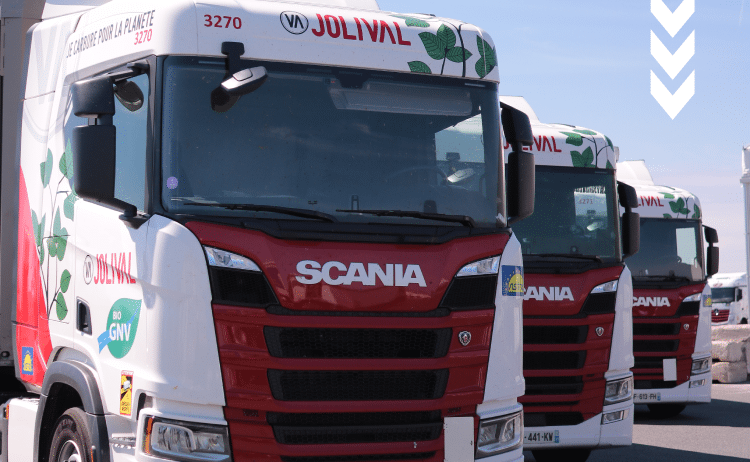
wave5 best energy img3
In Nanterre, Michaël Fedaouche, 37, is the CEO of Wave Transport, a brand-new business that he founded in April 2020, during the first lockdown, to meet the very immediate need for home deliveries. So far, Michaël has chosen electricity for his fleet of 6m3 vans.
“In our case you can't really call it switching to a new fuel. It's really about anticipating the market to avoid obsolescence. We started off very simple, with two micro-entrepreneur delivery drivers who used their own thermal vehicles. Then we bought a few thermal vans. We couldn't afford to buy our own electric vehicles. We noticed that most calls to tender were starting to require green technology, so we looked into different alternative fuels. We hesitated between hydrogen, gas, and electric. After researching the issue and getting several quotes, we went with electric vehicles. That’s what we’ve chosen for now, but in 3 or 4 years we might change course and switch to a different fuel.
That’s why, for most of our fleet, we decided to go with long-term leases from Watèa by Michelin, so we’re always up-to-date.”
For Gaëtan: “The future will be multi-fuel. Different fuels will coexist. Each different activity will have its categories of trucks that use a specific fuel. For example, regional trucks will use biogas while electric trucks will serve urban needs... But I think it's stupid to lock ourselves into electricity. We need to stop selling electric vehicles when we don't have solutions for production. If everyone, consumers and professionals, switched over to electric, what would we do?”
“I decided to buy a stake in a biogas station to secure our access to biogas, since 10% of our fleet now uses it. I’ll have a set price for 5 years. I won't have any volatility on fuel prices. For a transporter, that's a major boon! ”
Gaëtan Jollivet, Chairman and CEO of Jolival
Michaël admits that in his last-mile logistics business, increasingly strict urban regulations and his customers’ sustainable mobility requirements don't leave him many other options.
“Last mile calls to tender increasingly require electric vehicles. All the big players in our market are switching their fleets over to electricity. More and more of our customers require green vehicles.
Soon we’ll have about twenty electric trucks, including 14 from Watèa. And we bought 6 Citroën e-jumpys. Due to the microchip shortage, the delivery times on those vehicles are extremely long. We ordered them in June of last year (2021)... and we’ve been told to expect them in October... if all goes well!”
Gaëtan brings up the cost of electric trucks, with a touch of irony: “Today, an electric truck costs €500,000. The government subsidy is €50,000. And it’s amazing! The range is 50 km better than last year! It’s up to 250 km. That's half what you get with biogas... Maybe in two more years we’ll hit 500 km. But then there’s the question of chargers and how long they take. You need 600,000 volt meters. That would mean an enormous investment to equip our entire parking lot with superchargers! ”
Michaël agrees. “Electric vehicles are still expensive. We had to invest a total of €70,000 to put chargers in our garages. To offset that, we did get a €30,000 subsidy from the Ministry for Ecology. If I had one piece of advice it would be to get started soon because the subsidies could decrease. ”
Gaëtan raises another important point about new fuels: the distribution network. “Biogas stations are expanding, slowly but surely. About a hundred stations were opened across France last year. We can fill up almost anywhere. However, there are virtually no stations for the B100 and those are always on transporter sites. There's also no public xTL(1) distribution network. When it comes to electricity, there are charging stations for cars but not for trucks. At least not that I know of.”
To supply his biogas-powered trucks, Gaëtan invested in the construction of a methaniser and a public biogas station that are slated to be built in his town. “I decided to invest in securing our access to biogas, since 10% of our fleet now uses it. I’ll have a station right by my headquarters and a set price for 5 years. I won't have any volatility on fuel prices. For a transporter, that's a major boon! And we’ll have the assurance of local production. We will pay close attention to what waste is used.”
Michaël says that for his electric vans: “We need to charge them roughly every other day in Paris and its suburbs, where they cover an average of 100 km per day. Outside the Paris area, the average is closer to 150 to 200 km per day. That means daily charging every day.”
“For now, I’ll continue to invest in biogas. Unlike oil, we’ll never run out of cow manure and food waste! ”
Gaëtan Jollivet, Chairman and CEO of Jolival
Gaëtan adds: “For now, I’ll continue to invest in biogas. Unlike oil, we’ll never run out of cow manure and food waste!”
A brief explanation for the non-initiated: biogas is produced naturally by fermenting a wide range of organic matter, including both animal and vegetable products.
“If we can create fuel using liquid manure(2) as the ‘yeast’ and all kinds of food waste to provide combustible fat, we’ll have an energy source that’s a real winner and can be replicated anywhere! The scraps that are used to feed the chickens can go into the methaniser instead.
It's fantastic, it takes just 15 minutes to fill a truck if your station has the right compressors. And there’s no smell.
At this point I have some perspective because my oldest truck is four years old. In terms of operating costs, once you're at over 100,000 km per year, it's cheaper than diesel. With biogas, I fill up the tanks at €1 every day. It's the cheapest option out there. The problem right now is range. It’s currently about 500 km, which makes it a good fit for regional transportation.
All of my distribution for my customer Super U already uses biogas. And with Gémo, which also invested in the biogas station, we aim to use biogas for deliveries to 52 stores in western France by March 2023.
Gaëtan admits: “I’m well aware that this type of alternative fuel won't work for everyone. There won't be enough methanisers.”
“We are keenly aware of the environmental impact of our activity. That’s why we are committed to using eco-friendly transportation. We all live on planet Earth, and if we could avoid depleting all its resources, that would be great! ”
Michaël Fedaouche, CEO, Wave Transport
One final question for our two fleet owners before we say good-bye: what do drivers, the people who deal with these fuels on a daily basis, think of the changes to their vehicles?
“Of course we trained our drivers,” says Michaël. “You don’t drive an electric van the same way you drive a thermal one. You have to save the battery. But thanks to the data and an application provided by Watèa, drivers can manage their van's range.”
“Our truckers like driving these new trucks,” adds Gaëtan. “They really appreciate them because they are very aware of the environmental aspect.”
Michaël concludes philosophically: “We are keenly aware of the environmental impact of our activity. That’s why we are committed to using eco-friendly transportation. We all live on planet Earth, and if we could avoid depleting all its resources, that would be great!”
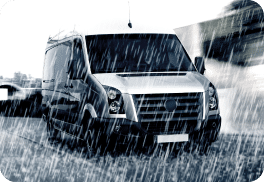
vans switching alternative fuels small square
(1) synthetic diesel fuel
(2) liquid animal waste from farms
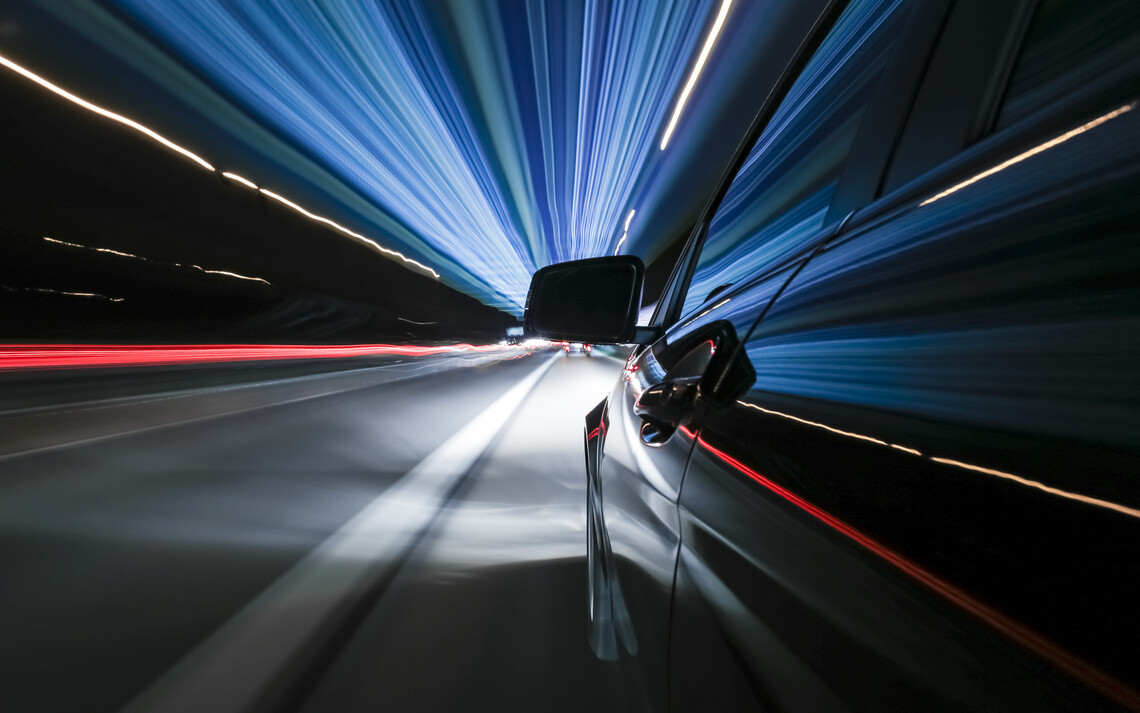
gettyimages 930571046
car going fast on a road by night


